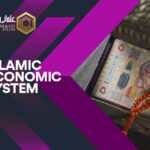
The constitution of the Islamic Republic of Pakistan states, “for the promotion of social and economic wellbeing of the people, the state shall eliminate riba as early as possible.” [Article 38(f)]
Are we Eliminating Riba As Early As Possible?
There are 45 conventional insurance companies and 28 of these have window takaful operations. There are only 5 full-fledged takaful operators in Pakistan.
The elements of riba(interest) and maysir(gambling) are found in conventional insurance which makes it impermissible. Just as we cannot get involved in theft, robbery, gambling, and earn riba in order to help the poor therefore we cannot help victims of accidents or losses from a riba based fund. The end does not justify the means!
وَمَا آتَيْتُم مِّن رِّبًا لِّيَرْبُوَ فِي أَمْوَالِ النَّاسِ فَلَا يَرْبُو عِندَ اللَّهِ وَمَا
آتَيْتُم مِّن زَكَاةٍ تُرِيدُونَ وَجْهَ اللَّهِ فَأُولَٰئِكَ هُمُ الْمُضْعِفُونَ
“That which you give as an interest to increase the peoples’ wealth increases not with Allah; but that which you give in charity, seeking the goodwill of Allah, multiples manifold.”
(Surah al-Rum, verse 39)
The element of riba is removed in the takaful business model by investing in halaal activities, not in investments with fixed interest rates. Riba is also removed by converting the conventional insurance sale contract between the participant and the insurance company into a Mudarabah(profit/sharing) contract or Wakalah(agency) contract.
Maysir(gambling) is disallowed in Islam because of excessive risk and uncertainty. The participant takes a risk by contributing a small amount to the fund with the hope of gaining a large sum – one can easily see the resemblance here with respect to gambling. One party’s profit is dependent on the other party’s loss. There is also uncertainty about whether the insured event will take place or not and the participant loses his amount if the event does not occur. There cannot be uncertainty in a sale contract in Islam when one buys something, he should receive it. Thus, by changing the nature of the contract to profit/sharing and agency, we can remove uncertainty from the model.
The element of maysir is further detached in the takaful business model by bringing in the concept of Waqf(donation) and Tabarru(contribution) along with the intention of helping a person who suffers a loss. By incorporating the intention of donation, contribution and mutual cooperation of the participant towards the fund, every time a claim is made from the fund, the participants get the reward of helping someone in need.
Narrated ‘Umar bin Al-Khattab: I heard Allah’s Apostle saying, “The reward of deeds depends upon the intentions and every person will get the reward according to what he has intended. So, whoever emigrated for worldly benefits or for a woman to marry, his emigration was for what he emigrated for.” (Source: Sahih Bukhari, Book #1, Hadith #1)
In the nineteen-eighties, the government of Pakistan initiated a program to establish an interest-free economy, but the program failed due to a lack of well-trained human resources in the field of Islamic finance, and so a parallel conventional financial system prevailed. (Hanif, Iqbal: 2017)
We have come a long way since then and even after 50 years since the first attempt was made to eliminate riba from our society, the struggle is still on and conventional insurance still surpass takaful.


“O you who have believed, fear Allah and give up what remains [due to you] of interest if you should be believers. And if you do not, then be informed of a war [against you] from Allah and His Messenger……..”
(Surah al-Baqarah, verse 278-9)
Such strong words have been used by Allah (SWT) with regards to Riba and still, we have failed to remove it from our system despite knowing that alternative shariah-compliant business models are present for us to adopt. Here I would like to summarize the globally accepted takaful business models for reference which are currently being practiced.
Mudharabah Model:
This model is not being practiced currently in its pure form but as a hybrid with other contracts. However, I have mentioned it here for an understanding of the following models.
- It is a profit-sharing contract between the takaful operator (Mudarib) and the participants (Rab ul Maal).
- The participants (Rab al Maal) pool into a takaful fund.
- The takaful operator (Mudaraib) manages the investments of the fund as well as payments of the claims.
- The investment income and the underwriting surplus is shared between the participants and takaful operator on an agreed basis.
- All Management and operational cost are borne by the shareholder’s fund and the incidental cost related to the underwriting and investments are borne by the takaful fund.
- The losses are absorbed by the capital provider (Rab al Maal).
Wakalah Model:
This model is currently followed by Bank al Jazira in Saudi Arabia, Takaful Ikhlas, and PruBSN in Malaysia. This model is based on Hiba or voluntary contributions to the fund.
- It is an agency contract between the participants and the takaful operator.
- The ‘principals’ are the participants and the ‘agent’ is the takaful operator.
- The takaful operator is appointed as an agent for the participants who then manages the takaful funds.
- The takaful operator receives a predetermined fee upfront which is usually a percentage of the participant’s contributions.
Hybrid of Wakalah and Mudarabah Model:
This model is quite well accepted and is currently being followed by AbuDhabi National Takaful operator. This model is based on Hiba or voluntary contributions to the fund.
- The Wakalah principle is applied to the underwriting activities, hence the takaful operator is entitled to an agency fee
- The Mudarabah principle is applied to the investment of takaful funds, hence the takaful operator is also entitled to a share of the profit.
- All underwriting surpluses are added back to the takaful fund.
- In order to avoid the agency issues with regards to the underwriting activities, a Jualah or a ‘conditional reward’ can also be attached to it. In case if the surplus exceeds a certain limit, the takaful operator receives a bonus for good underwriting practice.
Hybrid of Wakalah and Waqf Model:
This model was proposed by Sheikh Muhammad Taqi Usmani and is being followed by Swiss Re Retakaful globally, which is the worlds’ second-largest reinsurance company. This model is based on Waqf – similar to a trust.
- The general concept behind this model is to encourage an individual to save regularly with the aim of accumulating a fund which is then left as a donation under the waqf system.
- The takaful operator is the agent of the waqf fund and therefore receives an agency fee for his services payable from the waqf fund.
- The takaful operator can also receive jualah(performance fee) when he achieves a target with respect to the investment of the waqf fund.
- Any claims are paid from the waqf fund as per the waqf deed and underwriting surplus is added back to the same waqf fund.
Securities and Exchange Commission of Pakistan has taken substantial initiatives for the promotion of Islamic finance; including approval of a Pakistani retakaful company, regulatory framework, registration of shariah advisors, capacity building, standardization of accounting, and are continuing to do so.
The environment for insurance companies to convert and prosper as a takaful operator has already been set. With further advisory compliance solutions, the takaful business models can be implemented for all types of takaful products.
Furthermore, according to the Islamic financial services industry stability report 2019, Pakistan’s insurance penetration rate has increased from 0.77% in 2016 to 0.84% in 2017. Even though there has been an increase there is still great potential for growth. Securities and exchange commission of Pakistan in its 2019 annual report have announced that in order to increase penetration of the insurance industry not only compulsory insurance will be implemented but also the microinsurance market will be developed.
Pakistan, being a developing nation, the development of the microinsurance market is a viable strategy to increase the penetration of insurance. However, efforts should be made by takaful windows to introduce micro takaful products instead of microinsurance from their conventional counterpart. This move should not only be supported by the regulators but also the government. Only micro takaful products should be approved in order to support Islamic finance. Hybrid of the Wakalah/Waqf model or Wakalah/Mudarabah model can be implemented in order to make the product cost-efficient.
As micro takaful is aimed towards low-income group individuals, there is a possibility that this target group is not aware of the difference between conventional and Islamic insurance, therefore sales strategies should be formulated to not only make them aware of the difference between the two but also how financial protection can fulfill their need in times of dire circumstances so that they easily adapt it. An example of the Covid-19 situation can be mentioned.
Only 21% of Pakistan’s population is financially included which means that they have a bank account. Efforts should be made to promote bancatakaful and make it the default way of insurance, with regards to housing or motor loan in order to implement the proposed compulsory insurance strategy by SECP.
Aggressive strategies should be channeled in a way to implement takaful for eliminating riba as early as possible.
وَأَنْ لَيْسَ لِلْإِنْسَانِ إِلَّا مَا سَعَ
And that man shall have nothing but what he strives for.
(Sūrah Najm, verse 39)
About the writer: Sadaf Sawant is a panel member at Usmani & Co. She has a BS and MBA from IBA, Karachi. She also has an MSC in Islamic Finance from INCEIF, Malaysia.
Written by Dr. Muhammad Imran Usmani
DISCLAIMER: Copyrights are reserved by Usmani and Co.



